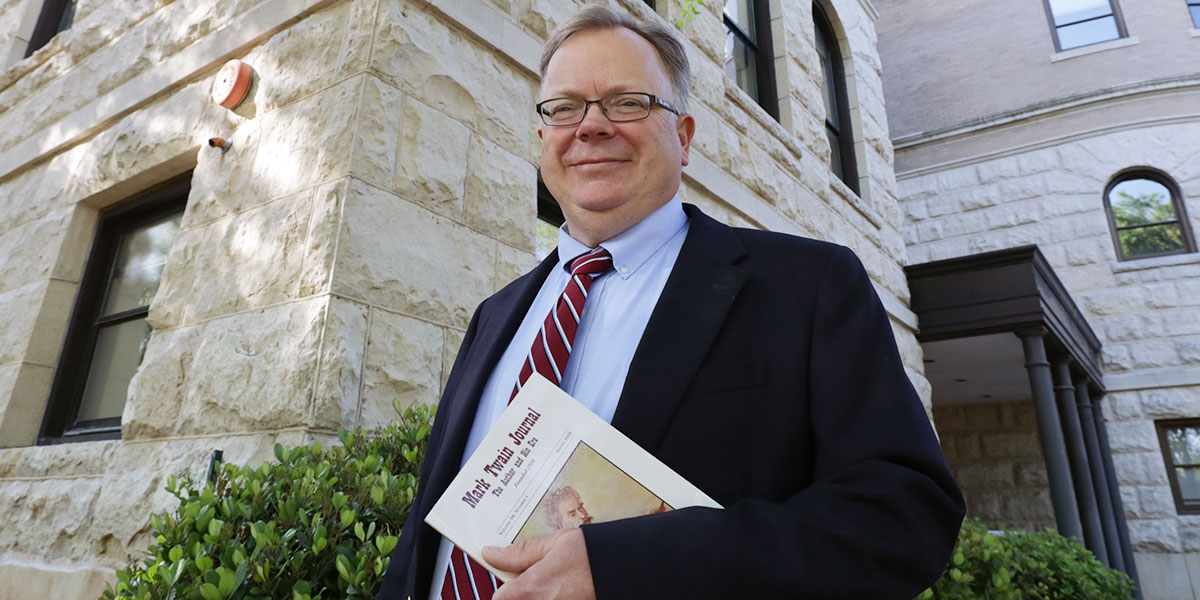Meet Baylor’s expert on Mark Twain and American literature

As the author of such classics as Adventures of Huckleberry Finn and The Adventures of Tom Sawyer, Mark Twain has long been considered by many to be “the father of American literature.” His writings, whether they were satire or speech, shaped prose throughout the 19th century (and continue to influence it today).
In honor of Twain’s birthday this month (November 30), we spoke with Dr. Joe B. Fulton, a Baylor English professor who has literally written the book on Twain — several books, in fact:
What about Mark Twain first interested you?
I grew up in a very “story-oriented” culture, where family stories were shared on the front porch or in the back yard, often while doing some kind of work. On my eight birthday, I received a copy of Adventures of Huckleberry Finn. I remember suddenly thinking: He’s writing about us! The life Twain described on the Mississippi River had many similarities to the life I lived in a small town on the Wabash River. It was the first time I saw something in a book that resembled the life that I was living.
Then what?
That early exposure to Mark Twain sparked my interest American language, history and literature. It started with wanting to know Twain’s influences, which led to a deep dive of writings from the 1820s and ’30s. These discoveries inspired the research I’ve done throughout my career, and what’s more is there’s still so much left to explore.
What have you found?
Well, I’ve learned a great deal about how Sam Clemens became Mark Twain. His early life and political convictions certainly impacted him; he was born into a slave-holding family, but became a champion of racial justice through his works. He channeled aspects of his life — of the American life — into his writings, which is what makes them so special and relatable.
How has Mark Twain influenced your discipline?
The Russians have an expression about the great writer Alexander Pushkin: “Pushkin is our everything.” I think that’s true of Twain for Americans. We read his work, we quote his comments on society, and we laugh along with him — often at ourselves. When we study literature, there’s no getting around Twain.
What’s the best part about teaching Twain and American literature?
Oh, the fact that the resources still exist today! Students really light up when they get to actually see and page through the old books and newspapers I bring into class. When I bring in some copies of Civil War-era newspapers, they are amazed that they are still in good shape.
I think it also helps that I’m passionate about the topic I’m teaching. I know not every student will devote their career to studying these types of materials, but I want to model an enthusiasm for research. They will all go on to be experts in something, and I want them to have as much enthusiasm for their course of study as I have for mine.
Sic ’em, Dr. Fulton!

